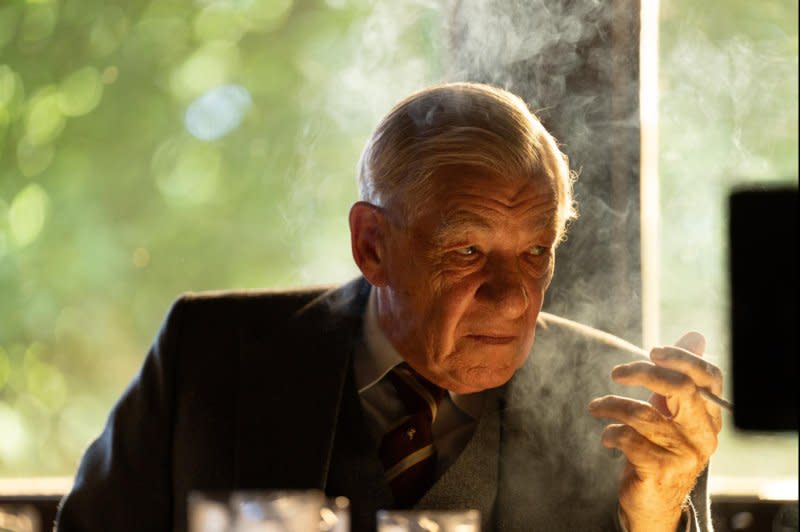Director – Anand Tucker – 2023 – UK – Cert. 15 – 101m
The first four fifths of The Critic *****
The final fifth of The Critic *
In the 1930s, a London theatre critic, a flamboyant homosexual known for destroying careers with his acerbic prose, finds his job under threat from his newspaper’s new proprietor – out in UK cinemas on Friday, September 13th
This originally played in the Toronto Film Festival in a 95m version, only to be acquired for UK release on the proviso that an ‘unsatisfactory’ ending be changed by way of reshoots involving the director, the screenwriter (Patrick Marber), and key cast members. So this current cinema release is the version with the ending changed, and this writer found that new ending less than satisfactory. Which is a pity, because up to about the last twenty minutes, the film impresses.
Now, one could construct a review narrative which says that the original ending must have worked better, and the film has been ruined by its UK distributor. It’s possible that that is indeed the case. However, not having seen that first cut, it is equally possible that the original ending had severe problems which this new version has attempted to fix, even if that doesn’t seem to have entirely worked, and that this new version is an improvement.
Without seeing that original cut, it’s difficult to know either way – perhaps both cuts will be available on a future Blu-ray release, where we can all decide for ourselves. Apparently, the new version uses footage originally shot but excluded from the original cut as well as footage shot subsequently, so it sounds like there is more material in the new version. Sometimes less is more, and sometimes it isn’t.
Certainly, in this new version, a number of promising elements are set up in the script only to not be properly paid off. Maybe they weren’t paid off properly before. Or maybe they were.
—
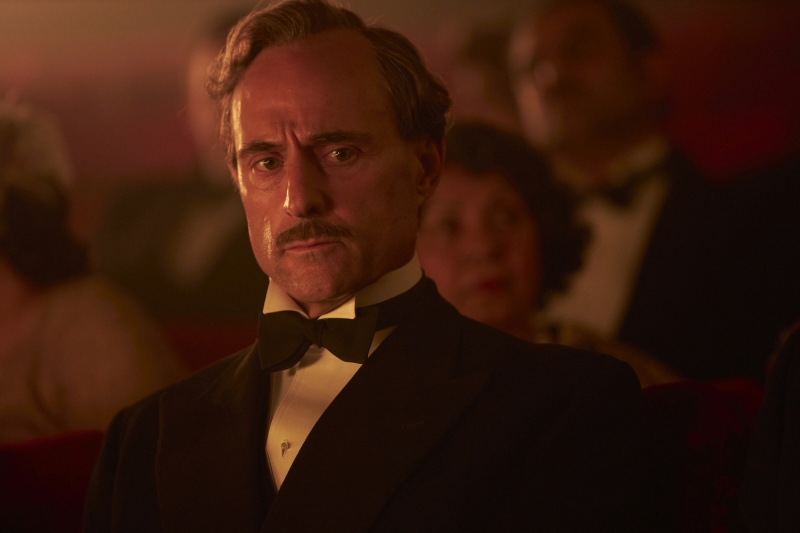
1930s Britain. David Brooke (Mark Strong) takes over the running of the newspaper The Daily Chronicle following the death of his father, its proprietor. As the new incumbent, he’s understandably determined to put his own stamp on the publication. He wants it to be a family-friendly publication, so intends to clean it up.
This puts him on a collision course with the paper’s long-standing theatre critic Jimmy Erskin (Ian McKellen), who routinely savages actors whose work he dislikes, ruining their careers – a particularly galling state of affairs for rising stage star Nina Land (Gemma Arterton) who is currently receiving rave reviews elsewhere but really bad ones from Erskin, the critic whose writing, she later admits, made her want to become an actress in the first place.
Esrkin’s lifestyle is as over the top as his writing. He can be difficult with theatre staff, as he insists on a private table at the theatre to write his review of the night’s performance, and woe betide anyone who should try to engage him in conversation while his mind is on that task, or any staff member who should give them access to him. He is a flamboyant homosexual (the film is set in a period before the word ‘gay’ came into common usage) who likes to party with male friends. He lives in an upmarket London flat with his devoted ‘secretary’ and lover Thomas (Alfred Enoch).
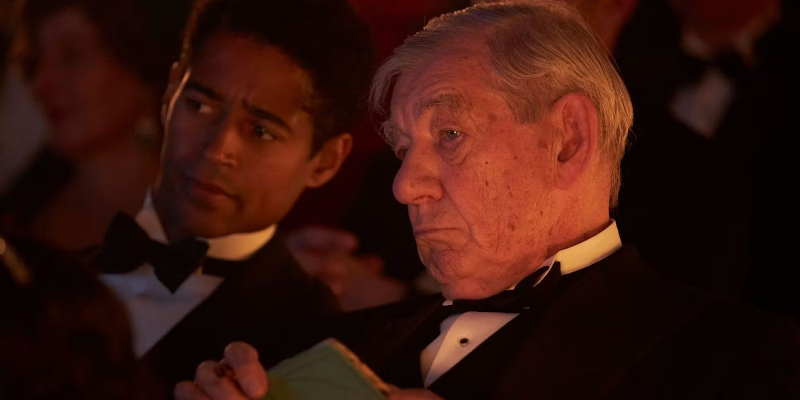
The paper’s new owner strongly disapproves of both Erskin’s verbal savaging of talent and his sexual preferences.
Meanwhile, Nina’s adoring, pushy and frankly uncritical mother (Lesley Manville) gives her daughter Erskin’s postal address to enable her daughter to confront the critic over for his less than complimentary treatment of her. When the actress catches up with Erskin, he somewhat surprisingly tells her that he thinks she has great potential, and she listens. She is in rehearsals for a play due to open imminently, and can’t seem to get her performance right. In the event, his advice gets her head to where it needs to be, and her resultant performance earns the coveted, favourable review from Erskin.
The first time we see Lund on stage, despite being fêted by the business, she is indeed terrible (always an impressive thing for a gifted actor or actress to pull off) whereas later, after taking Erskin’s advice to heart, her work onstage proves genuinely moving. The film gives Arteton a lot more to do than that – she plays scenes against overbearing mother Manville, turns up drunk at the critic’s flat where he sits her in a cold bath to sober her up and, finally, seduces besotted newspaper heir Strong.
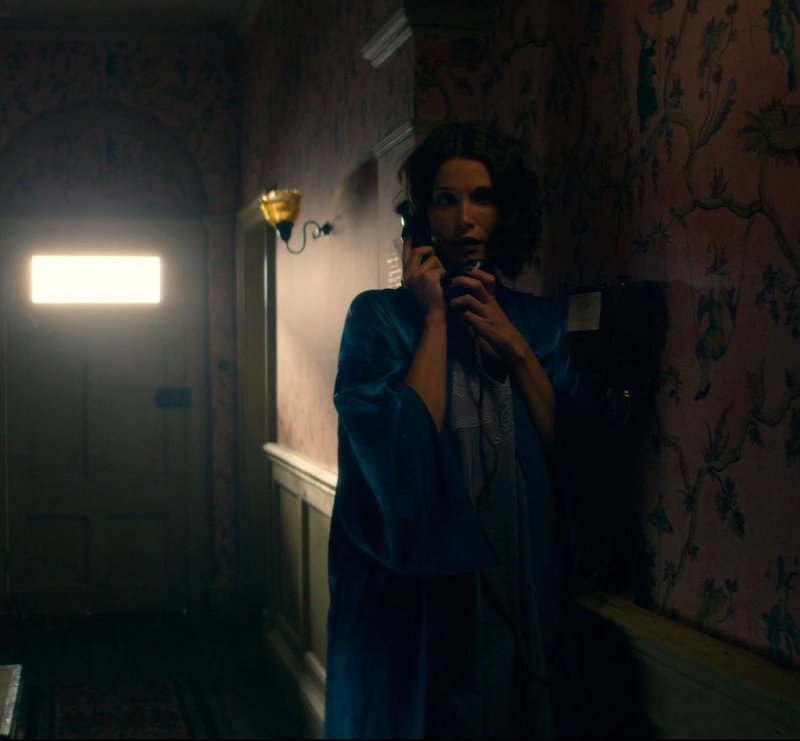
There is something of a tangled web between various characters in or around the ownership of the newspaper and the world of the arts. Owner Brooke is somewhat taken with rising star Miss Land while his none-too-happy daughter Cora (Romola Garai) is married to artist Stephen (Ben Barnes, from The Chronicles of Narnia: Prince Caspian, Andrew Adamson, 2008), who has been commissioned by the paper to do Erskin’s portrait and is busy trying to rekindle a failed affair with Miss Land.
Erskin, meanwhile, feels secure enough in his position at the newspaper to practice and on occasion flaunt his homosexuality in public, despite the threat of both arrest by the police for indecency and violence from fascist Mosley Black Shirts. His arrest following his encouraging a public kiss from Thomas gives his new boss the perfect excuse to fire him. The cunning Erskin, however, isn’t going to stand for that, and hatches a plot to blackmail Brooke into reinstating him, which is where persuading Miss Lund to seduce Brooke as “her greatest performance” comes in. As the relationship between the various parties involved grows ever more complex, the critic, the actress and the newspaper proprietor may all be about to come unstuck…
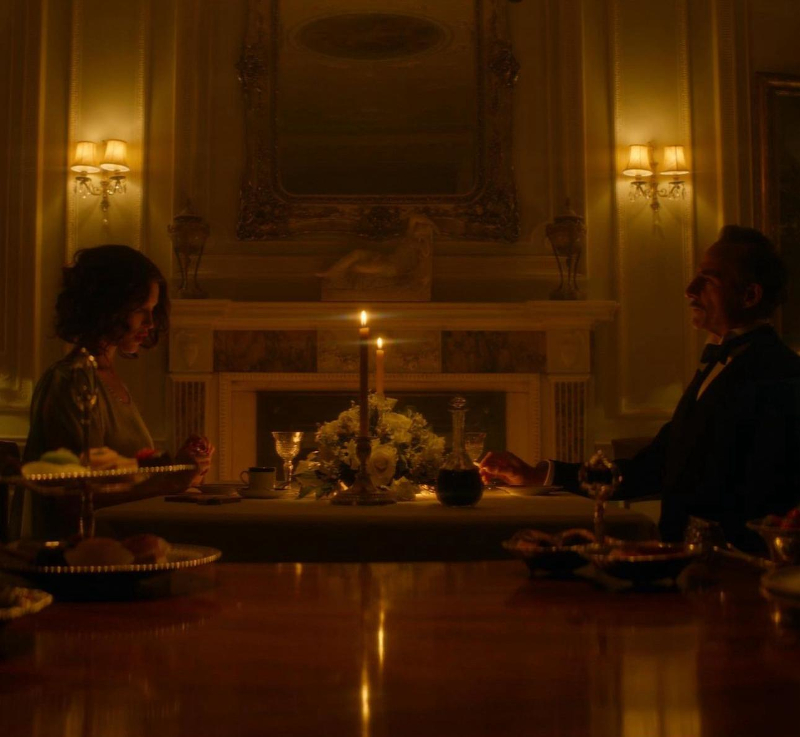
The narrative is very much a three-hander, with McKellen given (yet) a(nother) role he can really get his teeth into and have a lot of fun with, and it’s a pleasure to watch him do so. Arterton is likewise served a role with a good deal of material for her to play with, and is captivating whether playing the bad actress, the good actress, the mother-dominated actress or the young woman morally out of her depth.
And the third member of the triumvirate here, Strong – an actor who generally delivers striking character studies in major or minor roles – here gives one of his best performances as the newspaper heir whose relationship with his late father, his still living loopy wife and his unhappily married daughter are all, to say the least, troubled, all of which malaise spills over into his treatment of staff at the paper and his hankering after Miss Lund. And, curiously, he also appears to be someone determined to behave with decency, even telling the actress after their first night together that she shouldn’t feel she has to carry on seeing him unless she really wants to do so.
Further joys are to be found in the rest of the cast, in particular Lesley Manville as the actress’ blindly adoring mother and Alfred Enoch as the critic’s live-in assistant and partner.
Cinematography, art direction and costumes are all top-notch, arguably as impressive as anything else here.
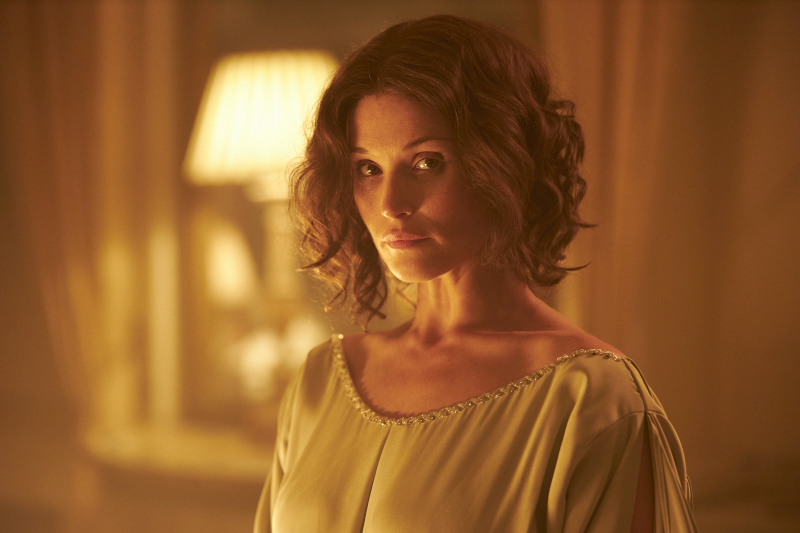
And yet, some of the most promising areas of the film fail to deliver. Erskin is introduced as a champion of free speech, living his life the way he wants despite social opposition, in contrast to his apparent ease at having landed his critic’s position from Brooke Senior back in the day and his appalling sense of entitlement for his job, without any real understanding of the privilege of his position he occupies.
Moreover, as the piece goes through the motions of intrigue and thriller, it fails to explore the contradictions of the eponymous critic’s character. Similarly, the whole position of homosexual men in Britain in the 1930s, with fascism on the rise and its attendant ever-present threat toward them and other minorities who don’t fit its ideals, isn’t explored anything like as much as it might be.
As the tale draws to its conclusion, the tension seems to fall out of the hitherto impressive denouement, as if it were trying to please an audience rather than follow through on the drama. Whether this is an ill-judged butchering of the original ending or whether those problems were there before, it’s difficult to know without seeing the earlier cut. The final scenes of the current version deliver a deeply flawed and dissatisfying ending.
Nevertheless, the first four fifths are well worth seeing.
The Critic is out in cinemas in the UK on Friday, September 13th.
Trailer:
